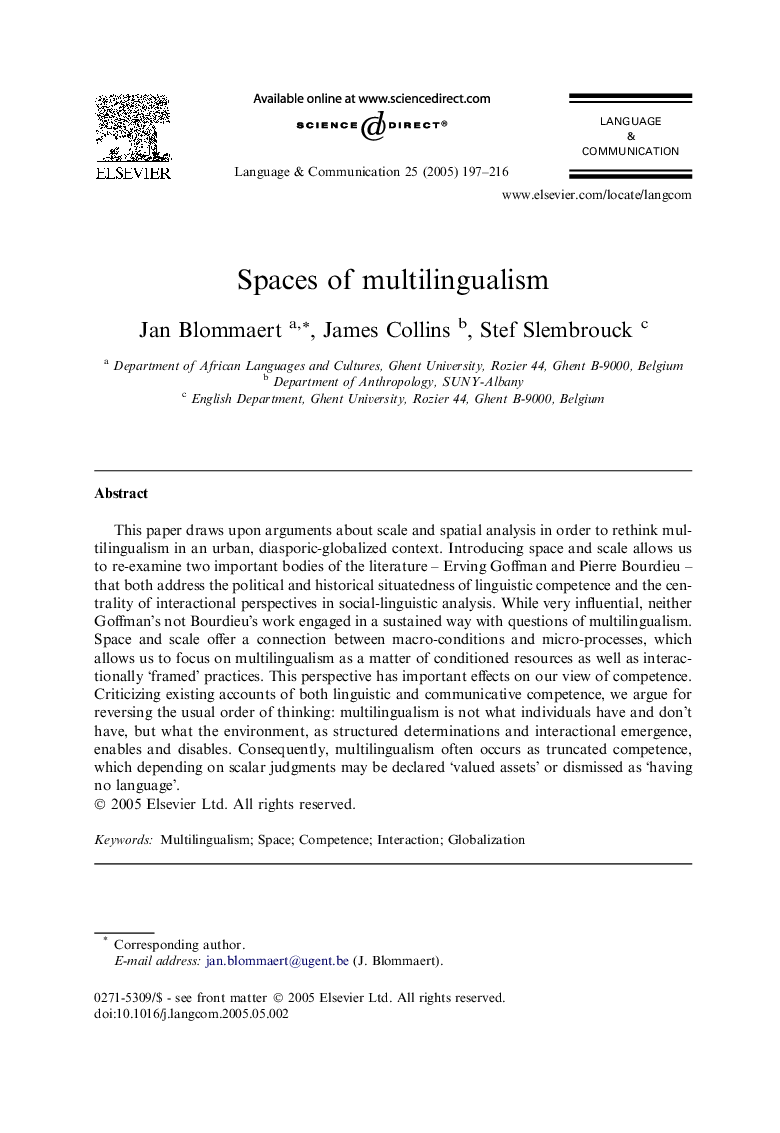| Article ID | Journal | Published Year | Pages | File Type |
|---|---|---|---|---|
| 10460952 | Language & Communication | 2005 | 20 Pages |
Abstract
This paper draws upon arguments about scale and spatial analysis in order to rethink multilingualism in an urban, diasporic-globalized context. Introducing space and scale allows us to re-examine two important bodies of the literature - Erving Goffman and Pierre Bourdieu - that both address the political and historical situatedness of linguistic competence and the centrality of interactional perspectives in social-linguistic analysis. While very influential, neither Goffman's not Bourdieu's work engaged in a sustained way with questions of multilingualism. Space and scale offer a connection between macro-conditions and micro-processes, which allows us to focus on multilingualism as a matter of conditioned resources as well as interactionally 'framed' practices. This perspective has important effects on our view of competence. Criticizing existing accounts of both linguistic and communicative competence, we argue for reversing the usual order of thinking: multilingualism is not what individuals have and don't have, but what the environment, as structured determinations and interactional emergence, enables and disables. Consequently, multilingualism often occurs as truncated competence, which depending on scalar judgments may be declared 'valued assets' or dismissed as 'having no language'.
Related Topics
Social Sciences and Humanities
Arts and Humanities
Language and Linguistics
Authors
Jan Blommaert, James Collins, Stef Slembrouck,
